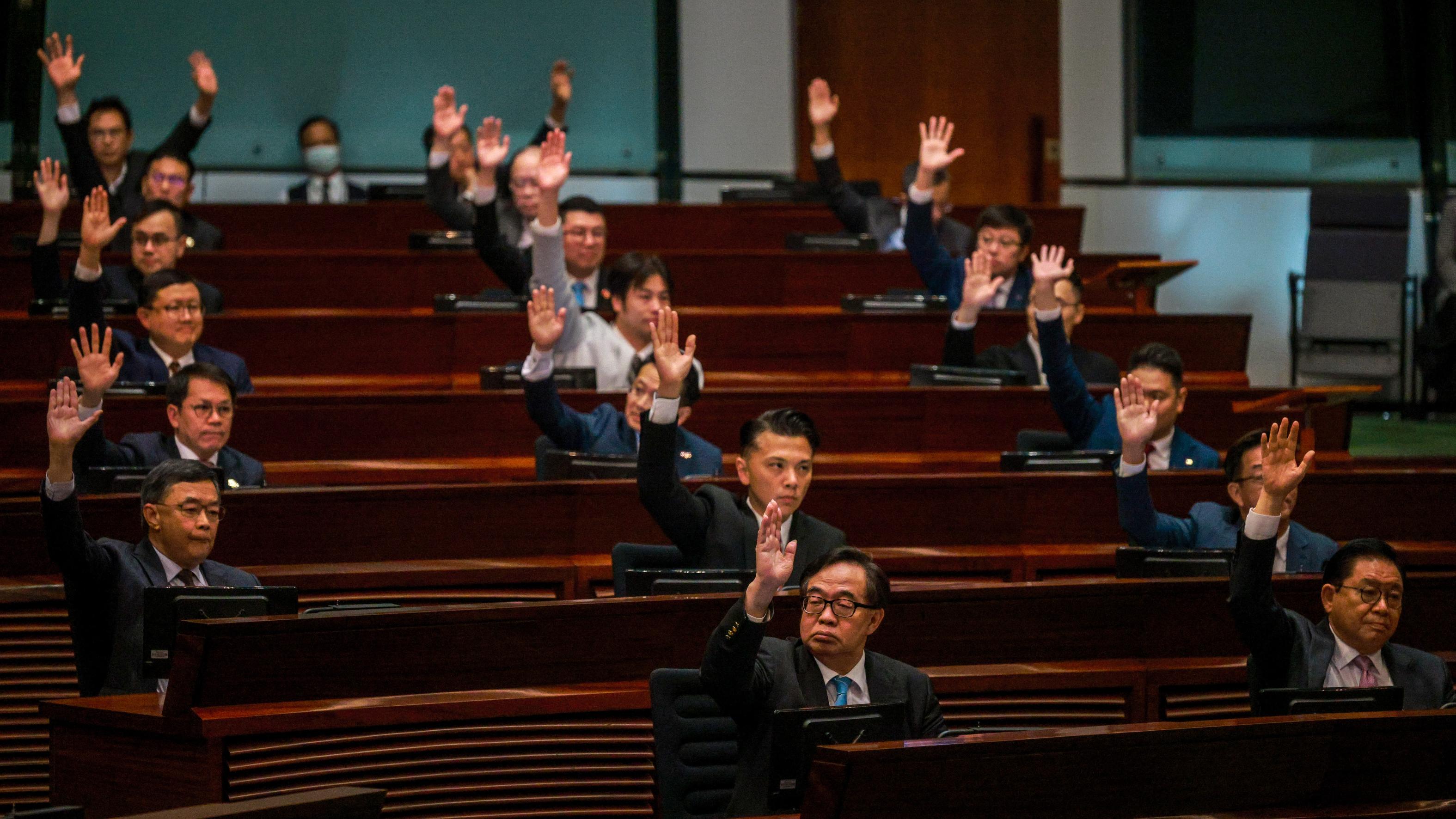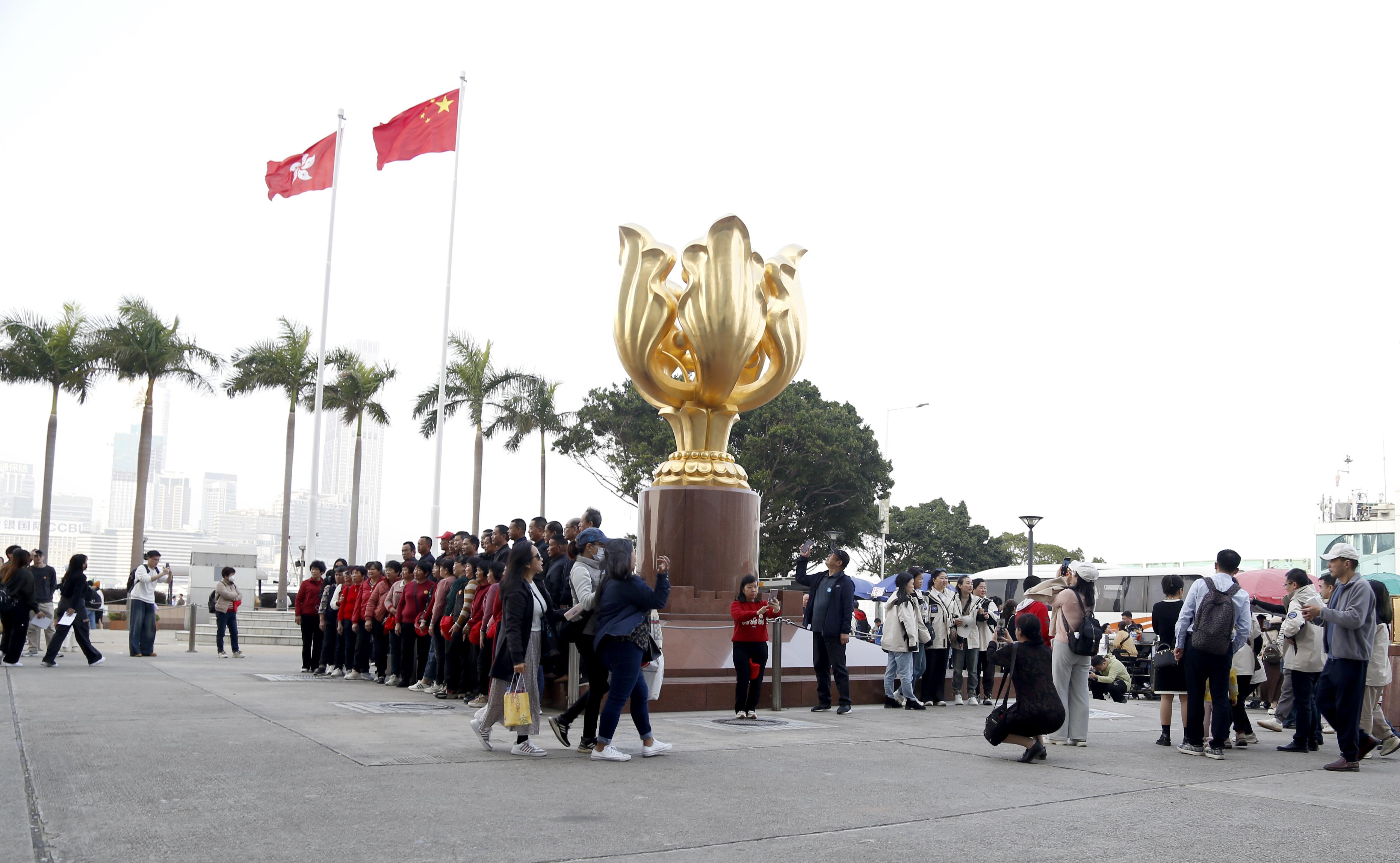 Lawmakers raise their hands as they vote to pass a second reading of the proposed Safeguarding National Security Ordinance at the Legislative Council in Hong Kong on March 19, 2024. (ANDY CHONG / CHINA DAILY)
Lawmakers raise their hands as they vote to pass a second reading of the proposed Safeguarding National Security Ordinance at the Legislative Council in Hong Kong on March 19, 2024. (ANDY CHONG / CHINA DAILY)
HONG KONG – The Hong Kong Special Administrative Region government has strongly condemned skewed, fact-twisting, scaremongering, and panic-spreading remarks by countries and regions including Australia and China’s Taiwan region.
Under the pretext of foreign travel advice, those countries and regions had smeared the Safeguarding National Security Ordinance by claiming that the risks of traveling to Hong Kong would increase and that people “could break the laws without intending to” after the ordinance comes into effect, the government said in a statement Friday night.
READ MORE: HK leader John Lee signs new security ordinance
The SAR government stressed that the offenses endangering national security stipulated by the ordinance target acts endangering national security with precision, and define the elements and penalties of the offenses with clarity.
The Ordinance is a piece of legislation to defend against external forces that endanger our national security, acting like a door lock to strengthen protection for our home.
Spokesman, HKSAR Govt
“Ordinary travelers, including travelers from Australia and China's Taiwan region, will not engage in acts and activities endangering our national security and will not unwittingly violate the law,” a government spokesman said.
Extraterritorial effect for offenses under the National Security Law and the new ordinance fully aligns with the principles of international law and the common practice adopted in various other countries and regions, added the spokesman.
The government pointed out that the national security laws of various countries, including the United States, the United Kingdom, Australia, Canada, and the member states of the European Union, also have extraterritorial effect under the “personality principle” and the “protective principle”.
“In formulating the extraterritorial effect under the Ordinance, we have taken into account the principles of international law and international practice of state jurisdiction, as well as the nature of the offenses.”
It also emphasized that all law enforcement actions taken by the SAR’s law enforcement agencies are based on evidence, strictly according to the law and in relation to the acts of the persons concerned, instead of the ordinance allowing for arbitrary arrests, as had been claimed.
As regards the power to restrict consultation with lawyers under the ordinance, it is attended by sufficient safeguards to ensure that the provision is consistent with the right to confidential legal advice and a choice of lawyers, said the government.
ALSO READ: Commissioner's office condemns slander against security law
Individual countries including the US, Canada, and Japan, and some external organizations have continued to make unfounded criticisms of the ordinance, disregarding the strong popular support for it and its benefits for Hong Kong’s economic development and its protection of human rights, it said.
 In this Jan 1, 2024, photo, visitors take photos as the Chinese national and Hong Kong regional flags fly at the Golden Bauhinia Square in Wan Chai, Hong Kong. (SHAMIM ASHRAF / CHINA DAILY)
In this Jan 1, 2024, photo, visitors take photos as the Chinese national and Hong Kong regional flags fly at the Golden Bauhinia Square in Wan Chai, Hong Kong. (SHAMIM ASHRAF / CHINA DAILY)
“Their attempt to mislead the public should be condemned.”
Ordinary travelers, including travelers from Australia and China's Taiwan region, will not engage in acts and activities endangering our national security and will not unwittingly violate the law.
Spokesman, HKSAR Govt
The newly passed ordinance clearly specifies that the rights and freedoms enshrined in the Basic Law and the provisions of the International Covenant on Civil and Political Rights and the International Covenant on Economic, Social and Cultural Rights, as applied to Hong Kong, are to be protected in accordance with the law, it said.
“Critics neglected the provisions and lashed out wantonly, fully exposing their malicious intentions to harm Hong Kong,” the government added.
Pointing out that enacting laws to safeguard national security is an inherent right of every sovereign state and a widespread international practice, it said many common law jurisdictions have multiple examples of national security legislation. “Nevertheless, the relevant parties deliberately turned a deaf ear and maliciously smeared the Ordinance, completely unmasking their double standards.”
READ MORE: HK at UNHRC: Law a better protection from genuine threats
Stressing that the ordinance is a piece of legislation “to defend against external forces that endanger our national security, acting like a door lock to strengthen protection for our home”, the spokesman strongly urged the countries, regions and organizations concerned to stop interfering in Hong Kong’s affairs, which are the internal affairs of China.
“Their tactics attempting to destabilize Hong Kong will never succeed,” the spokesman reiterated.


